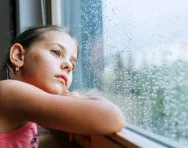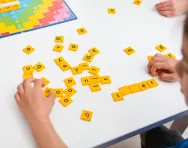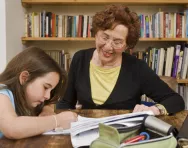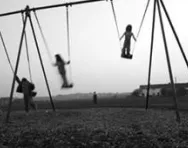TheSchoolRun.com closure date
As we informed you a few months ago, TheSchoolRun has had to make the difficult decision to close due to financial pressures and the company has now ceased trading. We had hoped to keep our content available through a partnership with another educational provider, but this provider has since withdrawn from the agreement.
As a result, we now have to permanently close TheSchoolRun.com. However, to give subscribers time to download any content they’d like to keep, we will keep the website open until 31st July 2025. After this date, the site will be taken down and there will be no further access to any resources. We strongly encourage you to download and save any resources you think you may want to use in the future.
In particular, we suggest downloading:
- Learning packs
- All the worksheets from the 11+ programme, if you are following this with your child
- Complete Learning Journey programmes (the packs below include all 40 worksheets for each programme)
You should already have received 16 primary school eBooks (worth £108.84) to download and keep. If you haven’t received these, please contact us at [email protected] before 31st July 2025, and we will send them to you.
We are very sorry that there is no way to continue offering access to resources and sincerely apologise for the inconvenience caused.
Leaving your child home alone: when is it safe?

As our children grow older, we all have to make decisions about how much independence to give them. One of these is deciding when it’s safe and appropriate for them to be left at home on their own.
‘Leaving your child home alone can be a difficult decision, as children mature at different rates,’ says Helen Westerman, NSPCC Service Head for Local Campaigns.
‘There’s no one-size-fits-all answer.’


Claim four puzzle packs today!
- KS1 & KS2 Word Puzzle Packs
- Numeracy Puzzle Packs for KS1 & KS2
- Challenging and exciting | Boost key skills
Leaving your child home alone: what the law says in the UK
There’s no legislation setting out how old a child should be before they can be left at home alone.
However, it’s against the law to leave them at home if it places them at risk, and you could be prosecuted if leaving them is likely to cause ‘unnecessary suffering or injury to health.’
The NSPCC suggests that:
- Babies and toddlers should never be left home alone.
- Children under 12 shouldn’t be left home alone for long.
- Children under 16 shouldn’t be left home alone overnight.
- Children should never be left alone in a home that could put them at risk – for example, with no electricity or water, or with dangerous items.
How do you know if your child is ready to be left at home alone?
With no laws prescribing the age at which children can be left home alone, it’s up to you as a parent to decide when your child is ready to be left.
Age is less important than maturity: for example, a sensible 12-year-old may be more mature and responsible than a slightly wayward 14-year-old.
You might want to consider things like:
- How long will you be away for, and at what time of day?
- Will you be able to check in on them by phone or text while you’re out?
- Do you trust them not to do anything potentially dangerous like lighting a candle or trying to use the oven?
- Do they know how to keep themselves safe if they go online?
- Are there any hazards in your home that could put them at risk?
- Would they know what to do in an emergency?
- Do they feel confident about being home alone?
‘Parents are best placed to know what’s right for their child, but it’s important to think carefully and use common sense when deciding if they would cope,’ advises Helen.
‘It’s important to build their independence at their own rate, and check how they’re feeling about being left home alone.’
This may not be the same every time: for instance, your child might feel happy to be left for an hour on a bright and sunny afternoon, but not on a dark winter’s evening
It’s sensible to gradually build up the time you leave your child for. You might try a 15-minute stint while you pick a sibling up from a club first, and extend the time as they – and you – feel more confident.
Remember, the decision you make doesn’t have to be set in stone. If you try leaving your child at home but find yourself worrying excessively, or if they get upset or don't follow your ground rules, it’s perfectly okay to go back a step and try again when they’re older.
What ground rules should you set?
‘When you’re leaving your child alone, it can be helpful to agree rules and practise what to do in an emergency,’ says Helen.
These will depend on you and your child but you might discuss:
- What are they going to do while you’re out?
- What will they do if someone knocks on the door?
- Are there any things that they’re strictly banned from doing – for example, using the oven or the trampoline?
- Are they allowed online, and if so, are there any games or websites that they mustn’t use when you’re away from the house?
- What would they do in an emergency? It can help to put together a safety plan for certain situations like an injury or a fire – it’s highly unlikely that they’ll need it, but it pays to be prepared.
- How will they contact you if they need to?
Can they look after a younger sibling?
Again, there’s no legislation or official guidance on this. You’ll need to take into account factors like the age and maturity of both siblings, how much care the youngest will need (you probably wouldn’t want to leave a 12-year-old with a toddler, or let your child look after a sibling with additional needs, for example), and whether they’ll be able to get along while you’re out.
Remember that your children are still your responsibility when they’re home alone together, and if anything goes wrong, you’ll be liable.
What about babysitters?
The decision to leave your child with a teenage babysitter – or let them babysit others, depending on their age – is a personal one. There are no restrictions in law, but babysitters under 16 are too young to be held legally responsible if something happens to your child, and you could be prosecuted for neglect.
If you’re thinking about using a teenage babysitter, or letting your teen babysit, make sure that they know what to do in an emergency, and are mature enough to cope if it arises.
If possible, let a neighbour or friend know that you’re going to be out and ask them to be on call if the babysitter needs help and you can’t get home quickly.
What do other parents think?
‘I have four children, aged 21, 18, 11 and five. I was happy to leave my eldest at home for 30 minutes max at around age 11, but my 18-year-old has mild dyslexia and Asperger’s and he was nearer 14 before I felt comfortable leaving him. I would comfortably leave my 11-year-old at home for half an hour if he stayed upstairs, but as a parent, you should know your child well enough to make that decision.’
Sharon Wilkinson
‘Every child is different. I think leaving a child of 11 or 12 at home for up to an hour would be fine, but not if there are younger siblings in the house, and obviously some children at that age wouldn’t be okay. It’s something that’s up to parents’ discretion as we know our children best.’
Lynda Whitehead
‘My 14-year-old was okay being left for an hour from about 10. He’s very capable and mature, but he was only happy being left during the day: from dusk onwards, he wasn’t keen on being left until about a year ago. My seven-year-old would be perfectly happy being left on his own, but I wouldn’t be happy: he’s very confident and I’d worry that he’d try to cook pizza on his own! But I leave him with his older brother and between them they’re quite happy.’
Emma Bennett
The NSPCC has a useful tool to help you decide when it’s safe for your child to be home on their own, and how to find alternatives if they’re not ready.








